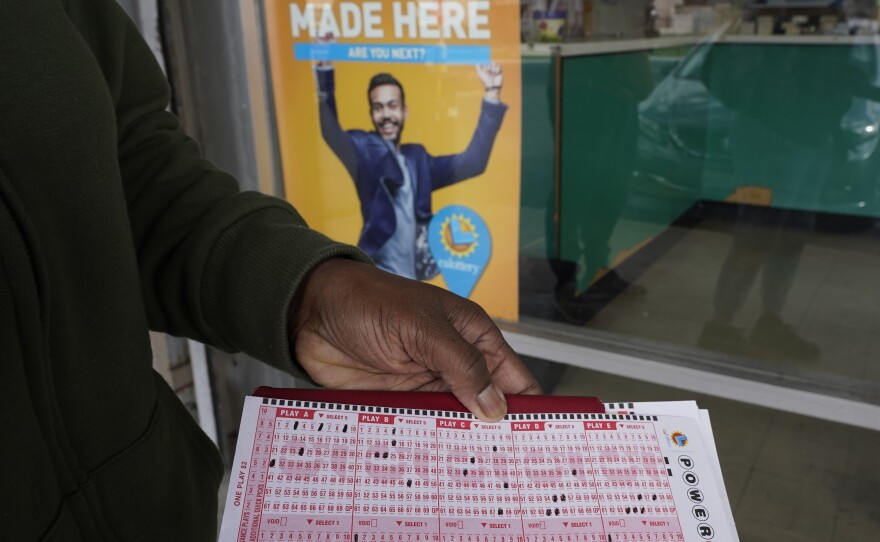After one very lucky person won the $2.04 billion Powerball jackpot in Monday's drawing, the prize reset for the next drawing to an estimated $20 million. But since there was no winner Wednesday, the jackpot for Saturday night's drawing has grown to an estimated $47 million.
Lottery officials put the odds of drawing the winning number at 1 in 292.2 million. To win the jackpot, a player must match all five white balls, in any order, plus the final red Powerball number. But don't worry — smaller prizes can be won by matching fewer numbers.
If you were to get lucky — very lucky — and possess a winning lottery ticket like this week's winner did, experts say there are a number of things you should do to protect yourself.
Don't announce that you won the lottery ... to anyone
If you're lucky enough to win, experts warn that you should keep your lips sealed tight.
"Because if you don't, you're going to be the target of all kinds of requests," said Ramona Ortega, CEO of WealthBuild.ai and personal finance expert.
"People will publicly know who you are, family that you know of will come knocking on your door, the IRS and every sort of debtor you owe money to will come knocking. You really want to make sure you're prepared," she added.
Ortega says that, in the end, you'll want to make sure that you're prepared for the sort of social intrusions that will occur as well as handling such a large sum of money.
Seek the advice of both an attorney and an accountant

With a large sum of money now in your (almost) possession, Ortega suggests you next should hire both an attorney and an accountant to figure out a strategic plan for your newfound wealth.
"Having a trust in place to receive that money, it makes it a lot easier for you to sort of go under the radar and plan better for such a large sum of money and plan better for the use of the money," she said.
Additionally, Ortega says winners should think about tax obligations and responsibilities — along with deciding how they actually plan to spend the money.
"It's quite a bit of money. There's a lot of financial decisions that you're going to be faced with as soon as you win," she added.
Decide on taking either the lump sum or installments
With the consultation of their attorney and accountant, one of the first decisions winners should make is whether to take the lump sum of lottery winnings or the broken-down annual payments.
Some financial experts say that spreading your winnings over a 29-year period results in a minor investment gain, according to Newsy.
However, others suggest taking the winnings in a lump sum may be the best option. "You don't really want to rely on [the state] sending you a check every year because it's like winning the lottery every year, so you go through the same emotions, you go through the same concerns over anonymity," lottery lawyer Kurt Panouses told Newsy.
Ortega says it's a matter of the winner making a fiscally responsible decision of trusting themselves with taking the lump sum or taking the longer route and getting paid in installments over time.
"There's no real straightforward answer," Ortega said. "With either one, there's going to be a lot of tax liabilities."
Copyright 2022 NPR. To see more, visit https://www.npr.org. 9(MDAzMjM2NDYzMDEyMzc1Njk5NjAxNzY3OQ001))







